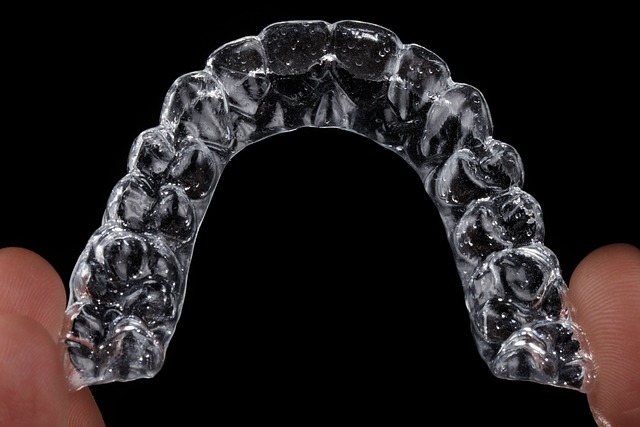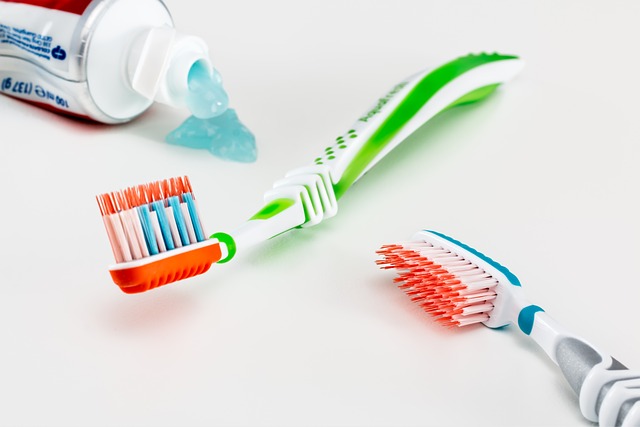Are Invisalign Aligners BPA-Free? The Facts You Should Know!
Welcome to our informative article on a topic that concerns many individuals considering orthodontic treatment: “Are Invisalign Aligners BPA-Free? The Facts You Should Know!” With the growing popularity of Invisalign aligners as an alternative to traditional braces, it is crucial to understand the safety aspect associated with these modern orthodontic devices. In this article, we will delve into the realm of BPA, or Bisphenol A, and explore whether Invisalign aligners are indeed free from this potentially harmful chemical. So, grab a cup of tea, sit back, and let’s uncover the facts together in a friendly and approachable manner.
1. What is BPA and why does it matter for aligners?
BPA, also known as Bisphenol A, is a chemical compound used in the production of certain plastics and resins. It’s commonly found in everyday items such as water bottles, food storage containers, and even dental products. BPA can leach into our bodies through ingestion or contact, and extensive research has raised concerns about its potential health effects.
When it comes to aligners, BPA matters because it’s essential to consider the materials used in their production. Opting for aligners that are free from BPA ensures that you’re taking a proactive step towards your overall well-being. Here’s why it’s important:
- Health considerations: BPA has been linked with various health issues including hormonal imbalances, reproductive problems, and increased risk of certain diseases. By choosing BPA-free aligners, you minimize your exposure to this chemical and potentially reduce these health risks.
- Reduced irritation: Some individuals may experience sensitivity or allergic reactions when exposed to BPA. By choosing aligners that are free from this compound, you can help prevent any discomfort or irritation during your orthodontic treatment.

2. Debunking the myth: Invisalign aligners and BPA
There has been a lot of misinformation circulating about the use of BPA (bisphenol A) in Invisalign aligners. We’re here to set the record straight and debunk this myth for you. Rest assured, Invisalign aligners do not contain BPA. Here are some important points to consider:
- Material composition: Invisalign aligners are made from a proprietary thermoplastic material called SmartTrack®. This advanced material is specifically designed to be free from BPA.
- Rigorous testing: Invisalign aligners undergo extensive testing procedures to ensure they meet high-quality standards. This includes certification for being non-toxic and free from harmful substances, such as BPA.
- Clinical studies: In numerous clinical studies, it has been confirmed that Invisalign aligners are safe for use and do not leach BPA into the body.
It’s crucial to separate fact from fiction when it comes to your orthodontic treatment. Invisalign aligners have long been proven to be a reliable and safe option for straightening your teeth. So, if you’ve been concerned about potential BPA exposure, you can put your worries to rest. Choosing Invisalign means opting for a comfortable, virtually invisible, and BPA-free orthodontic solution.
3. Exploring the safety of Invisalign aligners: Are they really BPA-free?
When it comes to considering Invisalign aligners as your orthodontic treatment, a common concern that might cross your mind is whether these aligners are truly BPA-free. BPA, or bisphenol A, is a chemical compound used in the manufacturing of certain plastics, and it has been linked to potential health risks. To help you make an informed decision, let’s explore the safety of Invisalign aligners in regards to their BPA content.
Rest assured, Invisalign aligners are indeed BPA-free. The makers of Invisalign prioritize your health and safety, which is why they use a patented thermoplastic material called SmartTrack® that does not contain any traces of BPA. This advanced material is specifically designed to offer you a comfortable and effective orthodontic treatment. By choosing Invisalign aligners, you can confidently straighten your teeth knowing that they are free from BPA-related concerns.

4. Understanding the composition of Invisalign aligners: Key features to consider
When it comes to understanding the composition of Invisalign aligners, there are several key features that you should consider. These features not only contribute to the effectiveness of the aligners but also enhance your overall experience during treatment.
One important feature to be aware of is the material used to create Invisalign aligners. These aligners are made from a smooth, clear, and BPA-free plastic material called SmartTrack. This material is not only comfortable to wear but also virtually invisible, allowing you to confidently go about your daily activities without feeling self-conscious about your orthodontic treatment. In addition, the SmartTrack material is specifically designed to exert gentle yet consistent force on your teeth, ensuring precise and predictable tooth movements.
- Another feature that sets Invisalign aligners apart is their custom-made nature. Each aligner is uniquely crafted using advanced 3D imaging technology, which maps out your teeth and creates a customized treatment plan. This means that every aligner is tailored to fit snugly over your teeth, providing a comfortable and secure fit throughout your treatment journey.
- Furthermore, Invisalign aligners are removable, giving you the flexibility to take them out when you need to eat, drink, brush, or floss. This means that you won’t have any dietary restrictions during your treatment and maintaining good oral hygiene is a breeze. Just remember to wear your aligners for the recommended 20-22 hours per day for the best results.
- Invisalign aligners also prioritize your comfort by avoiding the use of metal brackets or wires that can cause irritation or discomfort. Instead, the smooth edges and custom-fit of the aligners ensure a comfortable experience, reducing the likelihood of mouth sores or discomfort commonly associated with traditional braces.
Understanding these key features of Invisalign aligners will help you make an informed decision about whether they are the right choice for your orthodontic needs. The combination of SmartTrack material, custom manufacturing, removability, and comfort make Invisalign aligners an excellent option for achieving the smile you’ve always wanted.

5. Are BPA-free aligners the only option? Comparing Invisalign to other aligner brands
When it comes to orthodontic treatment, many people have heard about Invisalign, but did you know there are other aligner brands available? While Invisalign has gained popularity over the years, it’s important to explore all your options before making a decision. One key aspect to consider is whether the aligners are BPA-free, as this chemical has been associated with potential health risks. While Invisalign is indeed BPA-free, it’s not the only aligner brand on the market that offers this feature.
Several other aligner brands also prioritize your health and offer BPA-free aligners. By opting for BPA-free aligners, you can have peace of mind knowing that your aligners are made from materials that are safer for you. Some notable brands, such as ClearCorrect and SmileDirectClub, also provide aligners that are free from BPA. These aligners are custom-made to fit your teeth and gradually move them into their desired position.
- Comparing the different aligner brands can help you make an informed decision.
- Factors to consider include the level of experience of the company, the treatment process, and the cost.
- It’s recommended to consult with a qualified orthodontist who can assess your specific needs and recommend the best aligner brand for you.
- Remember, the objective is to achieve the best results while ensuring your comfort and safety throughout your orthodontic journey.
By exploring and comparing different aligner brands, you can find the one that suits your preferences, budget, and orthodontic needs. So, take the time to research and consult with professionals who can guide you towards making the best choice for your smile transformation!
6. Navigating the concerns: What research says about the safety of BPA in orthodontic treatment
Bisphenol A (BPA) is a compound that has raised concerns regarding its safety in orthodontic treatment. However, extensive research has been conducted to address these concerns and provide clarity to patients and parents. Overall, research suggests that BPA exposure during orthodontic treatment is minimal and poses no significant health risks.
Here are the key findings from research studies:
- Low BPA levels: Studies have found that the level of BPA released from orthodontic appliances is very low, well below the established safety limits.
- No systemic absorption: Research indicates that the amount of BPA that could be absorbed by the body from orthodontic treatment is extremely minimal.
- Limited exposure time: Orthodontic treatment usually lasts for a defined period, reducing the duration of potential BPA exposure.
- Regulatory compliance: Orthodontic appliances are subject to strict regulations that require them to meet safety standards, including limits on BPA content.
Based on these findings, it can be concluded that the use of orthodontic appliances containing BPA is generally safe. However, if you have specific concerns or are still unsure, it is best to consult with your orthodontist who can provide personalized information and guidance.

7. The importance of transparency: How Invisalign clarifies its stance on BPA
Invisalign, the innovative clear aligner system, prioritizes transparency in every aspect of its operations, including its stance on BPA. BPA, or Bisphenol A, is a chemical compound that has been used in the production of certain plastics and resins for decades. However, concerns about potential health risks associated with BPA exposure have raised questions among consumers.
At Invisalign, we understand the importance of addressing these concerns and providing clarity to our patients. That’s why we want to assure you that all Invisalign aligners are completely BPA-free. We are committed to using materials that are safe, reliable, and responsible for both our patients and the environment.
- Patient Safety: Invisalign aligners are made of a medical-grade polymer material called SmartTrack®, which does not contain any BPA or phthalates. This ensures that our aligners are safe and pose no unnecessary health risks to our patients.
- <b-Quality Assurance: Invisalign aligners go through rigorous testing and quality control processes to ensure that they meet our stringent standards. Our commitment to transparency and patient safety drives us to continually improve and evolve our product to deliver the best possible experience.
8. Prioritizing patient health: How Invisalign ensures BPA-free aligner production
When it comes to patient health, Invisalign goes above and beyond to ensure the safest treatments possible. One way they achieve this is by prioritizing the production of BPA-free aligners. BPA, or bisphenol A, is a chemical commonly found in plastics that can potentially be harmful to human health. Invisalign aligners are crafted using a special type of plastic that is BPA-free, giving patients peace of mind.
So, what exactly does it mean for Invisalign aligners to be BPA-free? It means that these aligners are made without the use of any materials that contain or release BPA during their production. This commitment to producing aligners free from harmful chemicals is just one of the many ways Invisalign works to prioritize the health and well-being of their patients.
- BPA-free aligners ensure patient safety and minimize any potential health risks.
- Invisalign aligners are made with a special type of plastic that does not contain or release BPA.
When undergoing orthodontic treatment, it’s important to choose a solution that not only straightens your teeth effectively but also upholds your overall health and well-being. With Invisalign, you can have the confidence knowing that your aligners are BPA-free, allowing you to focus on achieving that perfect smile without any concerns.
So, sit back, relax, and let Invisalign take care of your orthodontic needs while keeping your health a top priority.
9. Addressing common misconceptions: Invisalign’s commitment to delivering safe treatment
Invisalign is dedicated to providing safe and effective treatment options for our patients. We understand that there may be misconceptions about the safety of Invisalign aligners, and we want to address them head-on.
Firstly, it is important to debunk the myth that Invisalign treatment is not as safe as traditional braces. Rest assured, Invisalign aligners undergo rigorous testing and evaluation to meet high standards of safety. They are made from a smooth, medical-grade thermoplastic material that is free from harmful substances.
Furthermore, our commitment to safety extends beyond the materials we use. Each Invisalign treatment plan is personalized by our team of experienced orthodontists, ensuring that the aligners are designed to fit your unique smile perfectly. Additionally, our patented SmartTrack material and SmartForce features enable gentle yet precise tooth movements, enhancing the overall safety and effectiveness of the treatment.
Lastly, Invisalign aligners come with built-in features that promote safe treatment. Compliance indicators, for instance, help you track your progress by showing how long you’ve been wearing each set of aligners. The aligners are also easily removable, making it convenient for you to maintain good oral hygiene and enjoy your favorite foods throughout the treatment process.
At Invisalign, your safety and well-being are of utmost importance to us. We are committed to delivering a treatment experience that is not only effective but also safe. If you have any concerns or questions about the safety of Invisalign treatment, don’t hesitate to reach out to our knowledgeable team.
10. Making an informed choice: Considering BPA-free aligner options for your orthodontic treatment
When it comes to orthodontic treatment, it’s important to consider all your options, including aligners that are free from bisphenol-A (BPA). BPA is a chemical commonly found in plastics and has been linked to various health concerns. By choosing BPA-free aligners, you can ensure that your orthodontic treatment is as safe and effective as possible.
Here are some factors to consider when selecting BPA-free aligners:
- Material: Look for aligners made from medical-grade, BPA-free plastic. This ensures that the aligners are safe to use and won’t leach any harmful chemicals into your mouth.
- Comfort: Check if the aligners have smooth edges and are designed to fit comfortably in your mouth. You’ll be wearing them for most of the day, so it’s important that they don’t cause any discomfort or irritation.
- Effectiveness: BPA-free aligners should still be able to effectively straighten your teeth and correct orthodontic issues. Look for aligners that are backed by research and have proven results.
By considering these factors, you can make an informed choice when selecting BPA-free aligners for your orthodontic treatment. Remember to consult with your orthodontist, who can provide guidance based on your specific dental needs and goals.
Frequently Asked Questions
Q: Are Invisalign aligners BPA-free?
A: Yes, Invisalign aligners are indeed BPA-free. Invisalign became aware of the potential health concerns associated with the use of Bisphenol A (BPA), and made the decision to manufacture their aligners without this chemical.
Q: What is BPA?
A: BPA, which stands for Bisphenol A, is a chemical compound commonly used in the production of plastics. It has been used in various consumer goods, such as water bottles, food containers, and even dental products. However, studies have suggested that long-term exposure to BPA may have negative effects on human health.
Q: Why did Invisalign decide to go BPA-free?
A: Invisalign is dedicated to providing safe and effective orthodontic treatment. When concerns about BPA’s potential health risks surfaced, the company swiftly decided to eliminate this chemical from their aligners. Their commitment to patient well-being and safety led to the development of BPA-free aligners.
Q: How are Invisalign aligners made without BPA?
A: Invisalign aligners are made from medical-grade, durable plastic known as SmartTrack® material, which is completely free from BPA. This specialized material not only ensures a comfortable fit but also improves the treatment’s effectiveness. Invisalign’s innovative manufacturing process upholds the highest safety standards to deliver aligners that meet the needs of patients seeking orthodontic treatment.
Q: Are there any health risks associated with BPA exposure?
A: BPA exposure has been linked to potential health risks, although the exact extent is still being studied. It is believed to interfere with hormone balance and may contribute to various health conditions, including reproductive issues, developmental delays, and certain types of cancers. By choosing BPA-free Invisalign aligners, you can avoid potential exposure to this chemical.
Q: How can patients benefit from choosing BPA-free aligners like Invisalign?
A: By opting for Invisalign aligners, which are BPA-free, patients can have peace of mind knowing they are receiving orthodontic treatment without exposure to potentially harmful chemicals. This decision ensures your health and well-being are prioritized throughout your journey to achieving a straighter smile. Additionally, Invisalign’s clear, virtually invisible aligners provide a more discreet treatment option compared to traditional braces.
Q: Do other Orthodontic treatments use BPA-free materials?
A: Not all orthodontic treatments are made from BPA-free materials. However, more and more dental manufacturers are recognizing the importance of eliminating BPA from their products. It’s always recommended to do your research or consult with your orthodontist before choosing an orthodontic treatment to ensure it is free from potentially harmful chemicals.
Q: How can I find out if a dental product or aligner contains BPA?
A: To determine if a dental product or aligner contains BPA, you can check the manufacturer’s website or product information. Reputable manufacturers prioritize transparency and will clearly state if their products are BPA-free. If the manufacturer’s website or product packaging does not provide this information, it is advisable to reach out to them directly for confirmation.
Remember, when in doubt or concerned about the materials used in dental products, it is always best to consult with your dental professional.
Conclusion
In conclusion, the question of whether Invisalign aligners are BPA-free is one that is of utmost importance for those considering this orthodontic treatment. It is reassuring to know that Invisalign aligners are indeed free from Bisphenol A, a chemical known to have potential health risks.
By adhering to strict safety regulations and using advanced materials, Invisalign has demonstrated its commitment to providing a safe and effective teeth-straightening solution. The aligners are crafted from a medical-grade, thermoplastic material that not only ensures comfort but also puts your well-being first. This means you can confidently embark on your journey to a straighter smile without worrying about the presence of harmful substances.
It is important to note that not only are Invisalign aligners BPA-free, but they also offer countless benefits over traditional braces. They are virtually invisible, allowing you to maintain your self-confidence throughout the treatment process. The aligners can be easily removed, allowing you to enjoy your favorite foods and maintain optimal oral hygiene without any restrictions.
Remember, if you are considering Invisalign treatment, it is crucial to visit an experienced orthodontist who can guide you through every step of the process. They will ensure the aligners fit perfectly and provide you with the desired results.
Invisalign aligners not only offer a discreet and convenient alternative to traditional braces, but they also prioritize your health and safety. With their dedication to creating BPA-free aligners, Invisalign continues to be a trusted name in orthodontic treatment.
So, why wait? Take the first step towards a beautifully aligned smile and consult with an orthodontist to find out if Invisalign is the right choice for you. With BPA-free aligners, you can confidently embrace this revolutionary treatment and look forward to a future with a stunning, healthy smile.






